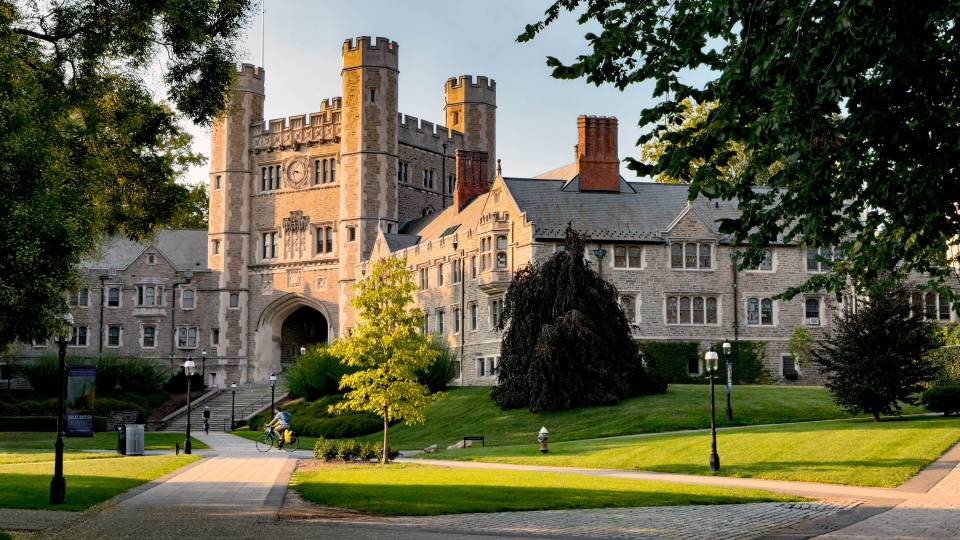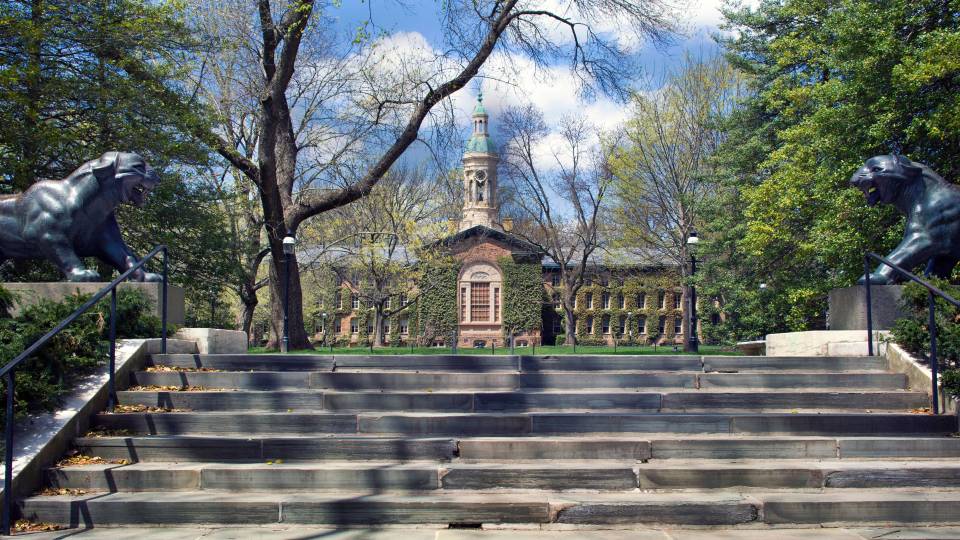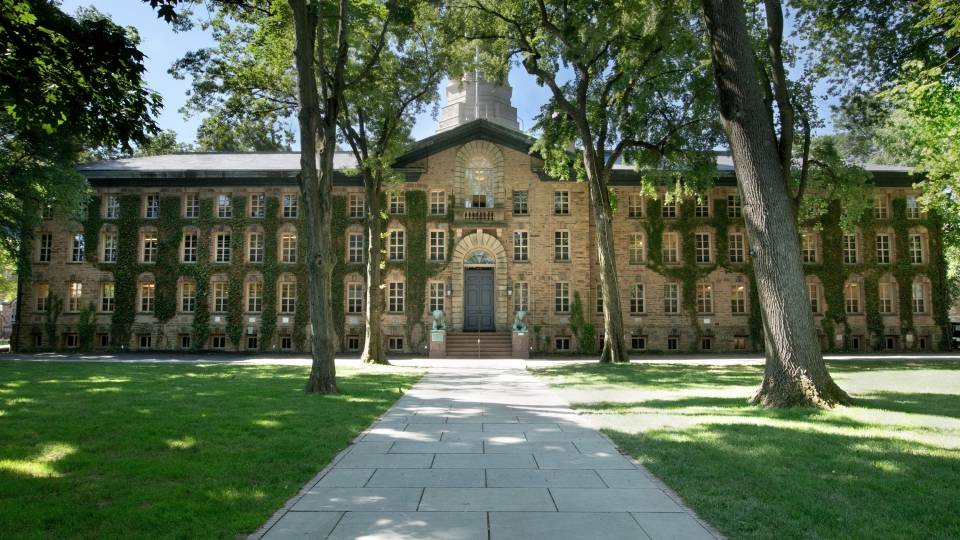President Christopher L. Eisgruber has written to the University community to outline the next steps the University administration will take to address systemic racism at Princeton and beyond
Dear members of the Princeton community,
In June, I wrote to you as America entered a profound national reckoning with racism. That reckoning is at once painful, because the harms done by systemic racism have been exposed so starkly, and promising, because we are seeing widespread and urgent desire to take action to achieve a more just society.
With that goal in mind, I charged my Cabinet in June to develop plans to combat systemic racism at Princeton and beyond. In my letter, I invited suggestions from all of you, and many individuals and groups responded. I am grateful for your input, and I write now with an update about our progress.
My Cabinet colleagues and I began our work early in the summer as people throughout America and around the world protested the cruel and unjust killings of George Floyd, Breonna Taylor, Ahmaud Arbery, and Rayshard Brooks. As the Cabinet gathered last week to discuss preliminary recommendations, the nation reeled once more after a Kenosha, Wisconsin, police officer shot Jacob Blake seven times in the back.
This outrageous and awful violence has revealed yet again, and with searing intensity, the long, painful, and ongoing existence of anti-Black racism in America. Racial justice demands the scholarly and practical attention of this University. Princeton contributes to the world through teaching and research of unsurpassed quality, and we must continue to find ways to bring that mission to bear against racism, and against all of the discrimination that damages the lives of people of color.
We must ask how Princeton can address systemic racism in the world, and we must also ask how to address it within our own community. That is true even though, for at least the past fifty years, this University has committed itself to becoming more inclusive. At a University that, for most of its history, intentionally and systematically excluded people of color, women, Jews, and other minorities, Princetonians— from the oldest alumni to the newest undergraduates — now take pride in the diversity of our community. They thrill to the achievements of all our students, faculty, and alumni, and they want Princeton to be a fully inclusive community.
Racism and the damage it does to people of color nevertheless persist at Princeton as in our society, sometimes by conscious intention but more often through unexamined assumptions and stereotypes, ignorance or insensitivity, and the systemic legacy of past decisions and policies. Race-based inequities in America’s health care, policing, education, and employment systems affect profoundly the lives of our staff, students, and faculty of color.
Racist assumptions from the past also remain embedded in structures of the University itself. For example, Princeton inherits from earlier generations at least nine departments and programs organized around European languages and culture, but only a single, relatively small program in African studies.
This summer’s effort to address systemic racism began with changes and initiatives that we announced in June. These included new funding for teaching, research, and service projects related to racial justice and the changes to the names of what are now the Princeton School of Public and International Affairs and First College.
Then, during July and August, my Cabinet colleagues examined systems and practices covering all facets of the University. They produced an impressive range of data-driven insights, recommendations, and questions for further study that we are now pursuing.
Much of this work is unglamorous, focused not on flashy symbols but on the nuts and bolts of University management. That is essential: to care about eradicating systemic racism, one has to care about systems. The Cabinet understands how to interrogate and improve the University’s systems, and I am proud of the dedication and imagination brought to the charge I gave its members. We expect our work to continue throughout this year and beyond, and Provost Deborah Prentice and I will communicate with you about it as we develop further plans and initiatives.
In my charge to the Cabinet, I specifically asked my colleagues to consider both the University’s own operations and how we could partner with organizations and communities around us to fight systemic racism in the world at large. In the Cabinet’s inquiry into this topic, one question emerged as especially important: how might Princeton extend its educational mission to reach underserved populations around it?
As a result of its history and structure, Princeton has none of the degree-granting continuing education, general education, or related outreach programs that exist at almost all of our peers. This kind of teaching initiative might simultaneously help to address the effects of systemic racism and expand the horizons of our scholarly and educational community. Our growing experience with online learning adds to the tools we might use to enhance such a project.
Developing such a program would be a major undertaking that would benefit from University-wide discussion, and it would require support from the faculty and the Board of Trustees. It could present novel opportunities to partner with other colleges, institutions, or communities in our region and beyond. I have authorized further exploration of the possibility, and Provost Prentice has agreed to oversee the effort.
In addition to exploring the possibility of a new credit- or degree-granting program that would extend Princeton’s teaching to a new range of students from communities disproportionately affected by systemic racism and related forms of disadvantage, the Cabinet identified several priorities for collective, University-wide work beginning immediately:
Assemble a faculty that more closely reflects both the diverse makeup of the students we educate and the national pool of candidates. To that end, we will undertake enhanced efforts to expand diversity of the faculty pipeline, and aspire to increase by 50 percent the number of tenured or tenure-track faculty members from underrepresented groups over the next five years. To enable the realization of these aspirations, we intend to use a broad range of existing and supplemental strategies, including thoughtful recruiting efforts to identify diverse candidate pools, encouraging departments to move into new fields or subfields that might offer diverse talent pools, and allowing hiring units increased flexibility to search in advance of future vacancies;
- Establish and strengthen parallel initiatives to diversify Princeton’s postdoctoral researchers, lecturers, visiting faculty, and graduate students, again with the aspiration of significantly increasing the number of scholars from underrepresented groups;
- Reconceive the Faculty Advisory Committee on Diversity to provide further leadership and oversight regarding departments’ recruitment and retention procedures, financial resources, and curriculum development;
- Develop an institution-wide, multi-year action plan for supplier and contractor diversity, bringing together and expanding efforts focused on procurement and diversification of vendors, consultants, professional firms, and other business partners, including external investment managers;
- Initiate a trustee-level ad hoc committee, augmented by students, faculty, alumni, and staff from the Council of the Princeton University Community Committee on Naming, to recommend principles to govern changes in naming and other campus iconography, in conjunction with other ongoing efforts to diversify Princeton’s institutional narrative and strengthen the welcoming character of the campus;
- Review Princeton’s benefits and policies, including the Tuition Assistance and Children’s Educational Assistance Plans, with an eye to enhancing equity for employees in lower-paid positions and others who might have been disproportionately affected by systemic racism or other class-based disadvantages;
- Strengthen support for ongoing anti-racism and diversity-related professional development and other educational opportunities for the campus community, including appropriate instruction for individuals with managerial or hiring responsibilities, as well as offerings regarding inter-group dialogue, inclusive pedagogy, and bias response.
To provide increased accountability around these goals, we will collect and publish additional data, including an annual Diversity, Equity, and Inclusion report; we will also make enhanced efforts to diversify external advisory committees throughout the University. We are in conversations with faculty members about academic initiatives on topics relevant to systemic racism.
Over the coming days and months, we will arrange opportunities for community input, dialogue, and discussion. We are in the process of planning multiple town halls for this purpose during September and October. We need your ideas, and, more than that, we need your engagement to make this University better. While my Cabinet will continue to pursue these measures, to implement other recommendations generated over the summer, and to develop additional ideas, real progress will depend upon continued commitment from throughout the University.
That is especially so with regard to faculty hiring and graduate student recruitment. Universities are decentralized by design, so that crucial decisions about hiring and curriculum benefit from the expertise of world-class scholars who know the relevant subject matter.
We can and will provide central support and increased accountability to enhance Princeton’s diversity, but there are limits, including legal restrictions, to what we can do or require as we press ahead with initiatives to diversify the University. For example, we cannot reserve jobs or specific positions for members of underrepresented minority groups. The interest and commitment expressed by faculty members and others throughout this University leaves me confident, however, that we can achieve our aspirational goals by working together collaboratively and energetically to identify outstanding scholars, and that we can do so in ways fully consistent with legal restrictions, academic freedom, and other defining principles of this University.
Indeed, on nearly all of the topics mentioned in this letter and others to come in the future, success will require sustained effort and continued commitment from the entire University community. It will not be easy, but the benefits will be tremendous. My colleagues and I look forward to hearing from you, communicating with you, and partnering with you to make Princeton fully inclusive, and to fight the systemic racism that has for too long damaged the lives of Black, Indigenous, and people of color, both at this University and in the United States more broadly.
With best wishes,
Christopher L. Eisgruber





